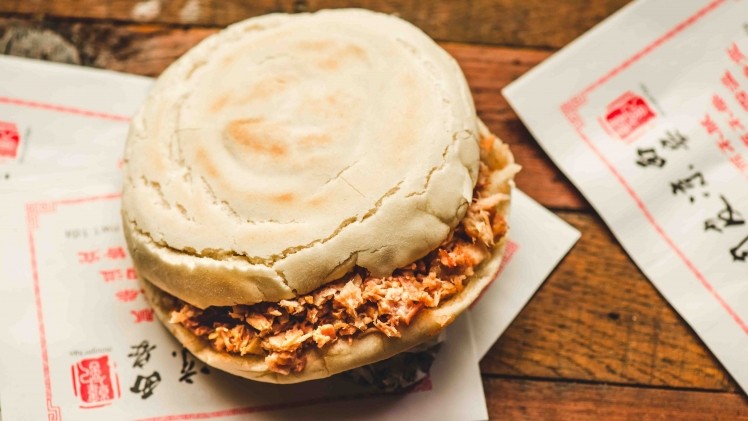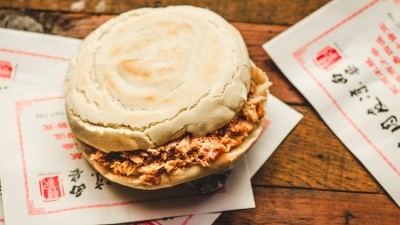The lowdown: The Murger

The Murger. Sounds, erm, delicious…
It’s actually the Chinese equivalent of a hamburger, and it’s a pretty old dish.
Older than the 10-year old McDonald’s burger that didn’t even rot?
Yes, even older than that. X’ian restaurant Murger HanHan in Mayfair says that its murger is ‘probably’ the world’s oldest sandwich or hamburger.
Sounds dubious.
According to the restaurant’s owners, the type of pan-baked flatbread used in the sandwich dates back to the Qin Dynasty from 221BC to 206BC, and the meat – spiced pork belly slow cooked in a spiced soup - originated in the Zhou Dynasty from 1045BC to 256BC (it’s not the same meat, we hasten to add). At Murger HanHan, the dish is made daily using a secret recipe that the owners were passed from their ancestors.
Sounds like a Chinese version of a pulled pork bun.
That’s basically what it is. Most countries have their own version of the meat/bread meal, and although in the UK we like to say they were invented by the Earl of Sandwich in the 1700s it is actually more likely that he stole the idea from the mezze wraps he saw on one of his excursions in the east Mediterranean.
Scandalous.
If you think that’s bad, you might want to sit down for this. Recent findings came to light last week that suggested that Swedish meatballs are actually Turkish. Sweden’s official national Twitter account, @swedense, tweeted “Swedish meatballs are actually based on a recipe King Charles XIII brought home from Turkey in the early 18th century”. Flatpack furniture is still very much Scandi, however.
Next you’ll be telling me that pasta isn’t Italian.
Well, that’s another debate. Everyone knows that Italians serve pasta dishes, but they aren’t the only – or even the first – country to serve the dish. It is actually the descendent of ancient Asian noodles, and it is thought that it was brought to Europe from China by Marco Polo. Some historians think that it actually made its way westward with nomadic Arabs and most cultures have their own takes on it.
You mean noodles?
Greece has orzo, Germany and Hungary have spaetzle, and Poland has pierogi - the polish answer to ravioli. Try the classic Italian version at upcoming Italian restaurant Lina Stores (an extension of the iconic Soho deli), or the Turkish equivalent at Selin Kiazim’s new restaurant Kyseri, which will specialise in little known Turkish pasta dishes called manti and eriste.
Anything else I should know about?
Well, you might have noticed a few Lebanese restaurants appearing in the UK recently, most of which are based outside of the UK, including Abd El Wahab, Caramel, and The Lebanese Bakery. Most of them serve hummus on their menus, which is a point of tension in the already fraught relationships between the two countries.
How?
Lebanon has complained about the dip being called ‘Israeli cuisine’ in Western stores. In 2008 the president of Association of Lebanese Industrialists launched a lawsuit against Israel for infringement of food copyright laws. The government also petitioned the European Union to classify hummus as a uniquely Lebanese food.
What did Israel do?
They started selling postcards at tourist kiosks calling hummus ‘Israel’s National Snack’.
Awkward.















